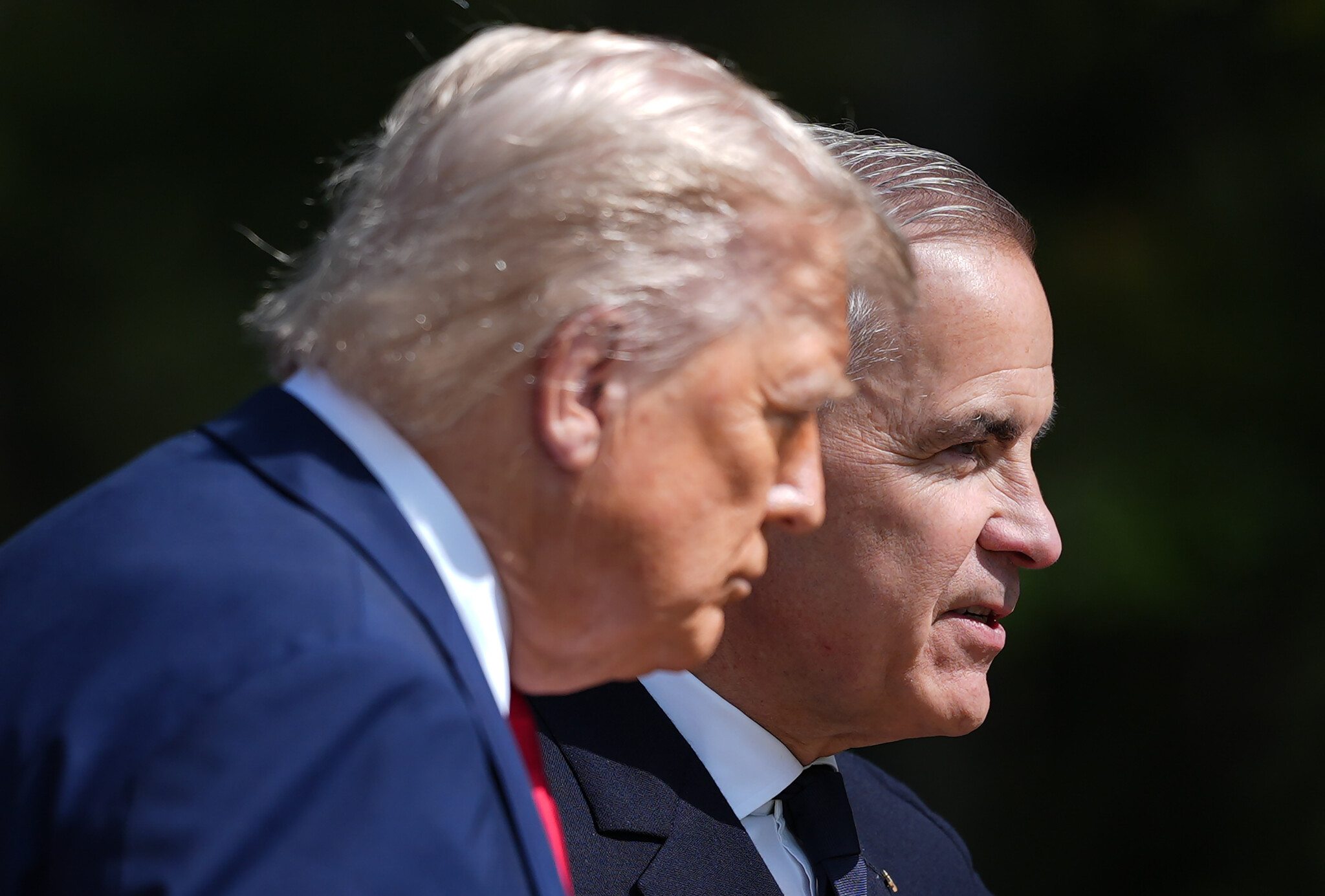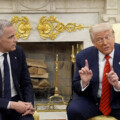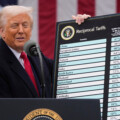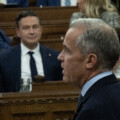When U.S. Ambassador to Canada Pete Hoekstra told a Canadian International Council audience recently that the Trump administration had hoped to negotiate a “bigger deal” with Canada beyond the narrow confines of CUSMA, our trade agreement with the United States and Mexico, he was not simply musing. He was extending an invitation. If Canada accepts it, Ottawa can reset the bilateral relationship on more balanced and sustainable terms.
Unfortunately, much of the early commentary has treated Hoekstra’s remarks as a warning shot, a prelude to hardball tactics. That is a mistake. Canadians should recognize this as an opening. Policy thinkers at the Macdonald-Laurier Institute and the Center for North American Prosperity and Security (CNAPS) have argued that our two countries need a “grander bargain,” one that goes far beyond tariffs or auto rules of origin. Hoekstra’s comments signal that Washington is prepared to have that conversation. The Carney government should embrace this opportunity.
A restrictive renegotiation of USMCA places Canada at a structural disadvantage. The United States has more bargaining chips and more appetite for confrontation. In a sector-by-sector negotiation, Ottawa would be forced into concessions on things such as autos, agriculture, or digital taxation—with very few cards to play in return.
That is why Canada must broaden the scope of our engagement with the Trump administration. We need to entice Trump, the quintessential “dealmaker,” with a deal that can move us beyond the individual irritants. Only a comprehensive negotiation can give us space to protect vital interests, trade concessions across domains, and rebalance the asymmetry of power.
The benefits for both sides
A grand bargain has many advantages.
Turning interdependence into leverage: Canada is deeply enmeshed in the American economy. Our energy exports fuel U.S. industry; our critical minerals are indispensable for electric vehicles and defense; our agricultural and forestry products supply American households. By broadening negotiations, Canada can frame this interdependence as a shared asset—one that requires reciprocity, not one-sided pressure.
Rebalancing asymmetries: A grander deal lets Canada bring forward issues where we have weight, such as critical minerals, continental defence, Arctic sovereignty, water management, and food security. These become tradeable chips in a cross-issue bargain, something impossible within a narrow CUSMA renegotiation.
Locking in stability: Recent events have shown how easily U.S. administrations can invoke “national security” or arbitrary tariff authority to disrupt trade. A comprehensive agreement should include stronger binding dispute settlement provisions and a legislative lock-in, raising the cost of political opportunism and mercantilism.
Future-proofing the partnership: The next decade will test North America with supply chain shifts, AI, climate adaptation, and Arctic pressures. Piecemeal trade deals will not suffice. A grand bargain can embed mechanisms for regulatory alignment, security coordination, and anticipatory dispute resolution.
Sovereignty by negotiation, not erosion: Critics warn that a grand bargain risks ceding sovereignty. But sovereignty is already compromised when Canada is forced into serial, reactive concessions under threat of tariffs. Negotiating a broad, structured framework is not surrender. It is agency.
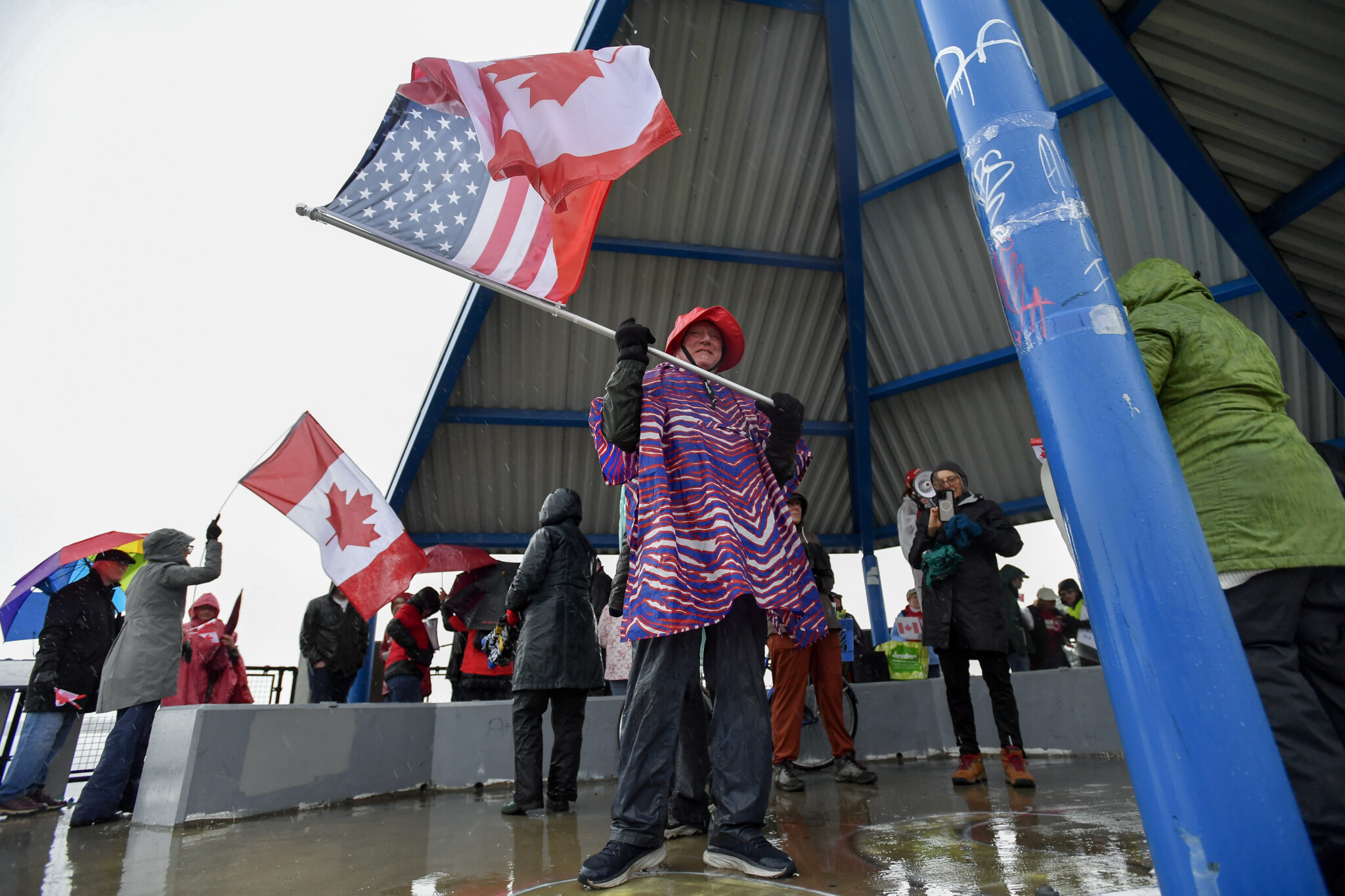
Elbows Up for Canada protesters gather near The Peace Bridge border crossing in Buffalo, N.Y., Wednesday, April 2, 2025. Adrian Kraus/AP Photo.
Clear objectives are critical
If Ottawa is to accept Hoekstra’s invitation, it should define clear objectives for the deal:
Critical minerals and energy security: Formal U.S. recognition of Canadian critical mineral exports as part of national defence supply chains, and streamlined approvals for cross-border infrastructure.
Continental defence and security: Integrated planning on cyber threats, missile defence, and intelligence sharing tied directly to trade and economic stability.
Softwood lumber and agriculture: Permanent dispute-resolution frameworks that prevent decades-long battles and retaliatory tariffs.
Arctic sovereignty and the Northwest Passage: U.S. recognition that these are Canadian internal waters, coupled with joint stewardship and Indigenous engagement.
Digital economy and data governance: Fair taxation regimes for digital services and clear rules on data protection.
Formal recognition under Section 232 under the U.S. Trade Expansion Act of 1962: Perhaps most importantly, a new economic and continental security partnership must enshrine in law that Canada is not a national security threat to the United States. The Trump administration’s willingness to invoke Section 232 tariffs on Canadian steel and aluminum is not only economically damaging; it is an affront to the very idea of allied partnership. A grand bargain must categorically remove the possibility that Canada could again be treated as a threat under this statute.
Strategic statesmanship, not appeasement
Skeptics will argue that dealing with a transactional Washington risks endless concessions. But clinging to a defensive position is worse. A narrow renegotiation of CUSMA would leave Canada cornered, conceding on sensitive files with little to show in return.
Instead, the Carney government should reframe the opportunity as strategic statesmanship. Agreeing to a grand bargain is not appeasement; it is the smartest way to preserve leverage. It is the only way to rebalance asymmetries, protect our sovereignty, and shape the bilateral relationship for the next generation.
Ottawa should begin preparing now by building a cross-departmental negotiating team, consulting with provincial and Indigenous governments, and cultivating allies in the U.S. Congress and industry. The worst mistake Canada could make is to show up unprepared when Washington signals it is ready. Hoekstra’s remarks should be recognized for what they are: an opening to reset the Canada-U.S. relationship.
Canada has a choice. We can trudge defensively into a narrow CUSMA renegotiation, armed with few bargaining chips, hoping merely to limit the damage. Or we can embrace the opportunity of a grander bargain, one that addresses not only tariffs and quotas, but also defence, energy, minerals, Arctic sovereignty, food and water security, and digital governance.
Most crucially, such a bargain must enshrine in law that Canada is not, and never will be, treated as a “national security threat” under Section 232. Only then can we build a durable continental partnership that reflects the reality that Canada and the United States are not rivals to be contained, but allies whose prosperity and security are inseparable.
A “bigger deal” is not capitulation. It is enlightened self-interest. And it’s time that our Canadian government embraced it.
